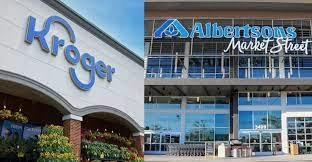 A March 21st report issued by the Federal Trade Commission (FTC) identified the involvement of major retail grocery chains in food inflation following supply chain disruptions coincident with the COVID years. The report analyzed the actions of producers, wholesalers and retailers in “skyrocketing prices for groceries” that impacted consumers.
A March 21st report issued by the Federal Trade Commission (FTC) identified the involvement of major retail grocery chains in food inflation following supply chain disruptions coincident with the COVID years. The report analyzed the actions of producers, wholesalers and retailers in “skyrocketing prices for groceries” that impacted consumers.
The report demonstrated that larger chains benefitted at the expense of smaller competitors. The focus of the report included Walmart, Amazon, Kroger, C&S Wholesale Grocers, Proctor and Gamble, Tyson Foods, Kraft-Heinz and Associated Wholesale Grocers Inc. The FTC report demonstrated the power of major retailers and their impact on the supply chain based on buying power to the disadvantage of smaller, regional grocery chains.
 The FTC report documented that large retailers increased their revenue by more than six percent in relation to costs during 2021 through 2023 without commensurate increases in operating expenses. The report also documented pressure on suppliers relating to prices and delivery.
The FTC report documented that large retailers increased their revenue by more than six percent in relation to costs during 2021 through 2023 without commensurate increases in operating expenses. The report also documented pressure on suppliers relating to prices and delivery.
The report was welcomed by the National Grocers Association (NGA), representing independent and small stores. Chris Jones, the Chief Government Relations Officer for the NGA, noted the past failure of the FTC and DOJ to use existing legislation to suppress pricing decisions that disfavor consumers and small suppliers. The NGA president, Greg Ferrara, stated, “Decades of lax antitrust enforcement enables grocery buyers to coercively squeeze suppliers to comply with their trade demands, unfairly disadvantaging smaller competitors”.
The Robinson-Patman Act specifically disallows both discriminatory and predatory pricing. Buyers who benefit from these practices violate the Act if the buyer pressures producers to agree to lower prices for commodities of similar grade and quality. This would apply specifically to generic USDA graded eggs that are a commodity in interstate commerce.
 The FTC report coincides with a lawsuit intended to block the merger of the Kroger Company with Albertsons Corporation. The Administration recognizes the political benefits of consumer protection in a pre-election year. Notwithstanding the intensified enthusiasm for anti-corporate action, it must be recognized that egg producers have been nickeled and dimed by the major chains over decades. This has reduced margins and deprived producers of sufficient profit to re-invest in maintenance and expansion. An added burden with less than adequate reimbursement is represented by the need to convert housing from conventional cages to alternative systems since 2020 to comply with welfare requirements.
The FTC report coincides with a lawsuit intended to block the merger of the Kroger Company with Albertsons Corporation. The Administration recognizes the political benefits of consumer protection in a pre-election year. Notwithstanding the intensified enthusiasm for anti-corporate action, it must be recognized that egg producers have been nickeled and dimed by the major chains over decades. This has reduced margins and deprived producers of sufficient profit to re-invest in maintenance and expansion. An added burden with less than adequate reimbursement is represented by the need to convert housing from conventional cages to alternative systems since 2020 to comply with welfare requirements.
The situation in the U.K. parallels the findings of the FTC with regard to pressure on producers. As with the U.S retail grocery in the U.K. is an oligopoly with a few retailers sourcing domestic-produced and some imported shell eggs. After Brexit feed and energy costs soared but retailers failed to adjust prices to allow independent producers of free-range eggs, comprising half of national supply, to reach break-even. The result was a sharp decline in availability as producers ceased operation due to exhausting working capital and credit. Eventually many of the large chains were obliged to make ex gratia payments to individual producers to restock housing and to resume production.
 The wholesale price of packed generic eggs in the U.S. should be subject to the law of supply and demand. Cyclic periods of oversupply that were a feature of the 1980s through the 2010s have given way to a more rational rate of expansion following consolidation, conversion to non-caged housing and more reliable market intelligence. Unfortunately the prevailing industry benchmark reporting service now appears to function to the detriment of producers. The daily quotations appear to amplify downward movement in price and allows chain buyers the opportunity to depress prices over the short term by temporarily withholding orders. This results in a disproportionately low price, exacerbating price elasticity. A Midwest-large Chicago Mercantile Exchange (CME) quotation would be more equitable given that the costs of corn and soybean meal representing 65 percent of nest run expense is determined by the CME.
The wholesale price of packed generic eggs in the U.S. should be subject to the law of supply and demand. Cyclic periods of oversupply that were a feature of the 1980s through the 2010s have given way to a more rational rate of expansion following consolidation, conversion to non-caged housing and more reliable market intelligence. Unfortunately the prevailing industry benchmark reporting service now appears to function to the detriment of producers. The daily quotations appear to amplify downward movement in price and allows chain buyers the opportunity to depress prices over the short term by temporarily withholding orders. This results in a disproportionately low price, exacerbating price elasticity. A Midwest-large Chicago Mercantile Exchange (CME) quotation would be more equitable given that the costs of corn and soybean meal representing 65 percent of nest run expense is determined by the CME.
Examination of pricing policies of large grocery chains by the FTC is long overdue and was in all probability a byproduct of the investigation of the proposed Kroger merger (or acquisition) with Albertsons. This transaction would be detrimental to suppliers, workers and consumers as evidenced by lawsuits filed by the Attorneys General of eight states and the FTC.